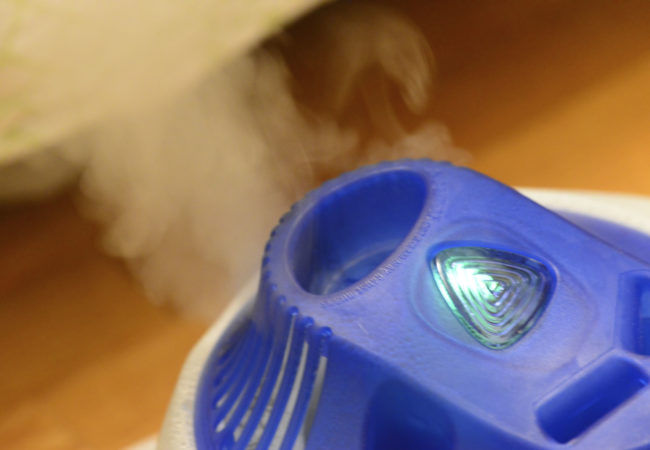Few aspects of colder weather months can be as irritating as dry winter air. (Well, maybe when your snow plow service doesn’t show up!) From fly-away hair to scaly skin, the cold winter air can wreak havoc on your body’s appearance. But did you know that dry winter air also can make you vulnerable to illness?
Breathing dry air can cause respiratory ailments such as asthma, bronchitis, sinusitis and nosebleeds. Breathing dry air also can cause dehydration since body fluids are depleted during respiration.
“Your sinuses will dry out,” says family medicine physician Daniel Allan, MD. “The mucus that normally should be gooey and thick and can trap infection gets drier. So you’re more likely to get a cold because your mucus is not as able to catch things that you breathe in.”
Why you should use a humidifier
Cold winter air is dry because it holds less moisture than warm air. Because wintertime humidity is so low, what little moisture that is around is quickly sucked up into the air. So moisture evaporates more quickly from your body, which dries out your skin, makes a desert of the inside of your nose and leaves your throat parched.
What’s worse is that the furnaces that heat our homes can contribute to the problem by pumping our houses full of hot, dry air.
One way to combat the dryness is to add a humidifier — either for the whole home or within certain rooms. Another effective way to add moisture to the air is to place large bowls of water around the home. The water evaporates and adds moisture.
Home humidity levels should be somewhere between 30% and 50%, Dr. Allan says. Don’t overdo the humidity. Too much can cause mold growth and encourage dust and possibly cause respiratory issues, he says.
TRY Our AVYA Steam Inhaler. AVYA Gets deep into your nasal, sinus, and throat passages with natural warm steam.





Leave a Reply